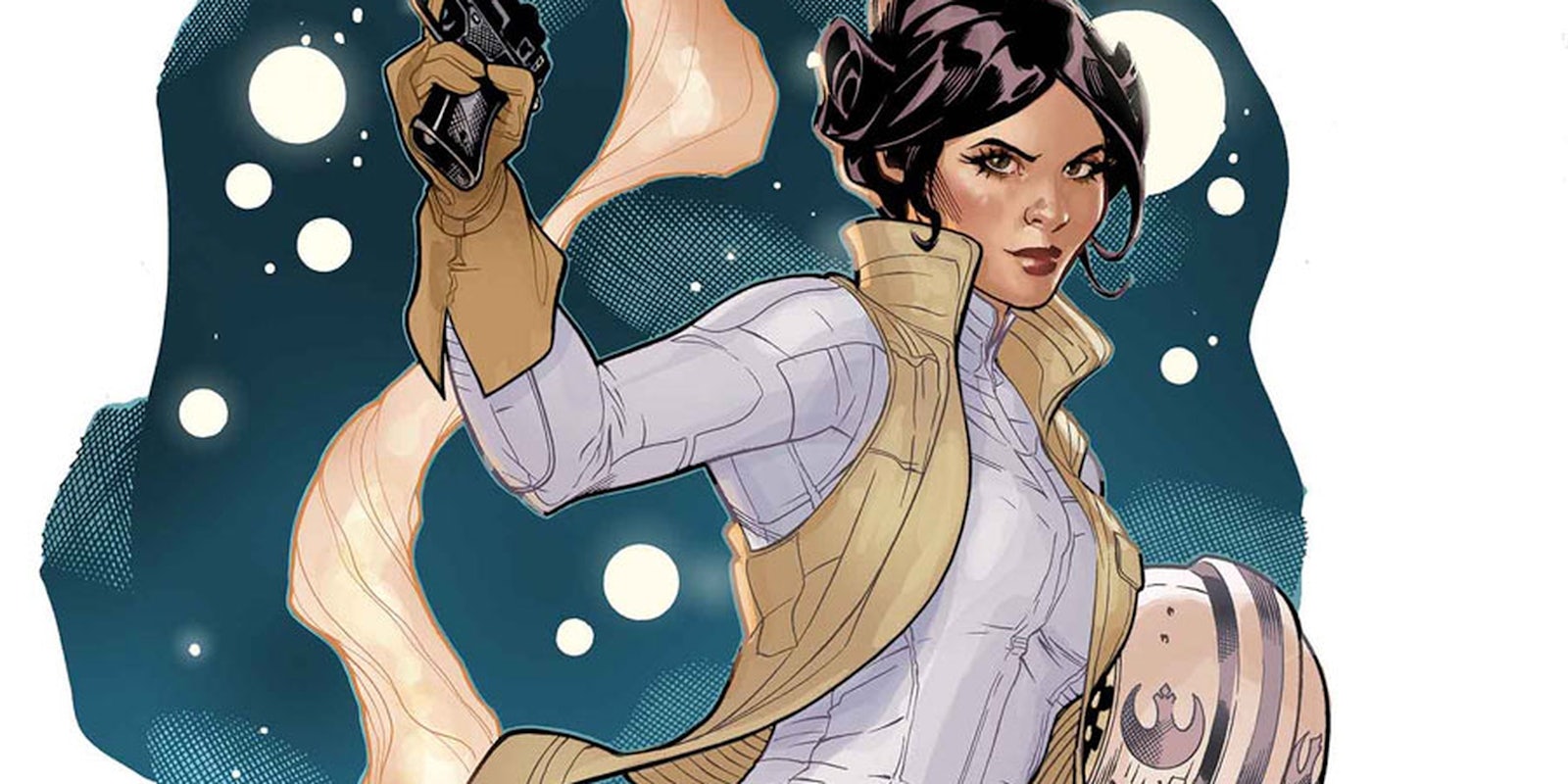Marvel‘s commitment to female-led titles is continuing to pay off, in every sense. New issues of Princess Leia and Spider-Gwen reigned over March’s comics bestseller list, while Ms. Marvel continued to top the trade list.
Comics distributor Diamond, which tracks direct sales in comics stores, revealed to Comic Book Resources that for the month of March, Marvel all but swept the bestseller list, holding nine of the top 10 titles.
At the top was “Princess Leia #1,” part of Marvel’s series of Star Wars comics focusing on each of the four main characters from Episode IV onwards. “Princess Leia #2,” which also debuted last month, clicked with readers, coming in as the No. 5 bestseller.
And despite the controversy that’s accompanied her debut as a superhero in her own right, Gwen Stacy’s alternate universe identity was a hit with readers. “Spider-Gwen #1” clocked in behind Star Wars and Guardians of the Galaxy titles to take the No. 4 spot.
DC Comics, which had no major franchise releases last month, eked out a spot on the list with “Batman: Arkham Knight #1,” a prequel comic for its Batman: Arkham game series.
On the trade paperback list, which combines sales of graphic novels and collected editions of comics issues, women also dominated the top of the list. The conclusion of Alan Moore’s graphic novel trilogy Nemo: River of Ghosts, which features an aging female anti-hero as its lead, took the No. 1 slot. And Ms. Marvel continued to prove her popularity, with the second collected volume of her series coming in at No. 2 overall.
The success of these female-driven series continues to prominently, visibly undermine arguments that more inclusivity isn’t good for the whole industry. February also saw a female-led comic take the No. 1 spot on the bestseller list—IDW’s comic adaptation of cult TV hit Orphan Black. Its first issue sold a jaw-dropping 500,000 copies, inevitably getting a huge boost from having eight different covers—one for each of the show’s popular clones.
But Orphan Black continues a growing and visible trend of female titles selling extremely well. Last year, Ms. Marvel‘s debut issue received a rare sixth printing, while popular DC villain Harley Quinn‘s topped bestseller lists. Her first issue also made it to a fifth printing.
In February, prior to Princess Leia‘s release, comic stores were begging for re-orders for the first issue and all of its variants before it even went on sale. You could argue that Leia is an exception among the annals of geek culture, a character who looms as large over our cultural landscape as Batman or Superman. Of course she’s going to sell well.
But this marked sign of her popularity is important for fans who have struggled to have equal representation for their favorite female characters outside of comics. Despite her cultural importance, Princess Leia has hardly had a fraction of the marketing attention given to her male counterparts. The Disney Store declined to include her in its new male-friendly line of Star Wars action figures, though they did include a nameless, faceless Stormtrooper. Hasbro recently had to respond to fan outcry over her total omission, initially, from an upcoming set of Star Wars action figures. Yet despite an ongoing fan push for her inclusion with hashtags like #WeWantLeia, she and other female Star Wars characters continue to be ignored in favor of male heroes when it comes to product development.
But if frustrated fans can’t get marketing teams to listen to their demand for more female representation in their fantasy and superhero lineups, they can at least put their money where it counts when it comes to supporting stories.
And given the recent backlashes over more inclusivity in gaming and science fiction, it’s nice to see that at least in one corner of the geek world, women and minorities are finally being recognized as more than just side characters.
Illustration by Terry Dodson via Comic Book Resources


